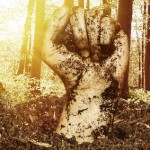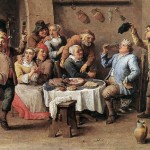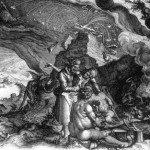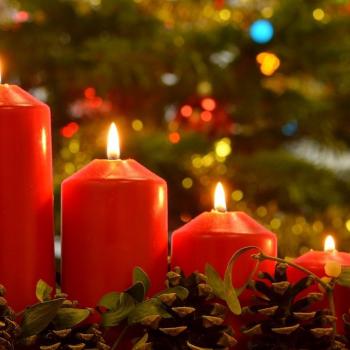In the blogosphere we often talk at each other instead of talking to each other. In order to facilitate better communication (and possibly because it’s fun) I like to round up as many Patheos Pagan writers as possible and have an actual conversation, one where we shoot ideas back and forth at each other. In June we talked about Atheism, Polytheism, and Pagans, this time around it’s the Future of Paganism.
With a Patheos Public Square about the Future of Paganism in the wings at the end of August, and our ongoing series Why I’m Still a _____, this seemed like a good time to discuss the future, and how the Pagan Umbrella is holding up in 2015. If any of this ever feels argumentative while you are reading that’s my fault as an editor. Our conversation was cozy and congenial all the way through.
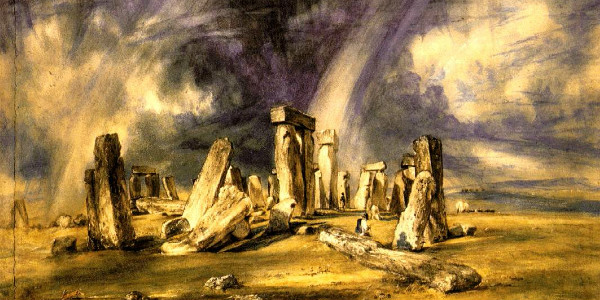
Jason Mankey (Raise the Horns): So I tend to start at the beginning . . . this is for all of you. “How long have you been a Pagan and what brand of Pagan are you?” You are bloggers so I know “short and sweet” will be tough for most of you.
David Dashifen Kees (Editor at Agora): 17 years, Technopagan (short enough?)
Dana Corby (The Rantin Raven): I’m an old-style Wiccan, initiated in December 73. But I’m also a Bard in the RDNA and Companion/2nd° in the AODA, though not active.
Angus McMahan (Ask Angus): 19 years, Celtic Hedgewitch with some Santeria seasoning.
Annika Mongan (Born Again Witch): 4th year, Reclaiming Witch
Gwion Raven (The Witches Next Door): 12 years primarily Reclaiming (Gwion). (My wife) Phoenix 22 years Primarily Reclaiming
Jason Mankey: 21st year, British Traditional Witch, Gardnerian.
Tom Swiss (The Zen Pagan): I count myself a pagan since about 1990, so…25 years? How did that happen? Eclectic. I go by “Zen Pagan Taoist Atheist Discordian”.
Laine DeLaney (Soon to be joining us at Agora): 19 Years, primarily Heathen at this point.
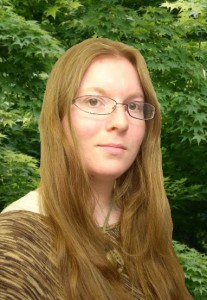
Jason Mankey: I suspect many people will drop Pagan over the next twenty years Rua.
Sable Aradia (Between the Shadows): 26 years, heretic Brit Trad with a very eclectic background
Yvonne Aburrow (Sermons From the Mound): Been on Patheos since 2012, Gardnerian Wiccan polytheist in UK. Pagan since 1985, Wiccan since 1991.
David Dashifen Kees: Which is the opposite for me. I’m Pagan first and anything else second.
Jason Mankey: In all of those years have you noticed any changes in the larger Pagan Community? How is it different from four, ten, fifteen, or twenty years ago?
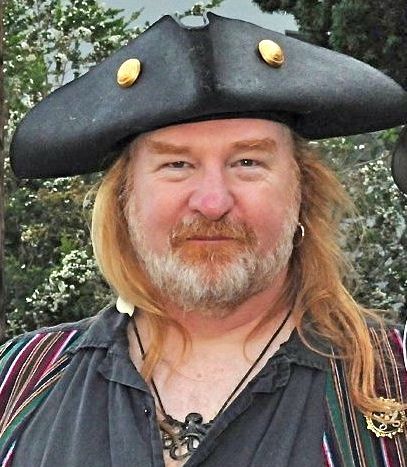
Gwion Raven: Oh my! Secret meet up driven, then book driven, then Internet leading to meetings driven, then internet driven. I’ve also seen a real return to small, private work in the past few years.
Tom Swiss: 20+ years ago we didn’t have the web. Some of us techies had BBSes and USENET and all, but our Pagan communities were more isolated. (Which is not necessarily an entirely bad thing, as I think perhaps it gave us more diversity and “figure it out yourself”.)
David Dashifen Kees: I think coming into Paganism with the Internet means that, for me, it’s always been a part of things. It’s part of why I call myself a Techno-pagan because the influence of modern technology on my spiritual self is undeniable. The biggest change is, I think, not really a change. In the beginning, I thought it was all Wicca all the time. It’s all I had access to. I thought people who worked with other gods were just doing Wicca differently. The Internet helped me to more fully understand reality and my own misunderstandings.
Laine DeLaney: A change from a smaller community with a focus on Wiccan-style working groups (covens and circles) to a broader recognition of non-Wiccan traditions and a greater focus on come-as-you-are meet-ups and groups. Also a lot of increased specialization and hiving.
Jason Mankey: Twenty years ago: Paganism was often shorthand for eclectic Wicca, with some consideration given to Heathens and Druids, but those folks often felt like exotic outsiders from far away places. Public arguments were generally relegated to well thought out letters in pages of “The Green Egg.” Bookstores were a social network, as were psychic fairs. “Wicca” was the “in” thing.
Rua Lupa: Haven’t had the amount of time other have had to determine any major shifts. What I have noticed is that most initially introduce themselves by their particular practice and use ‘Pagan’ as a more vague larger descriptor for gatherings of people who share different practices but feel that they have enough in common to gather around that name. What that commonality is is something I am uncertain about.
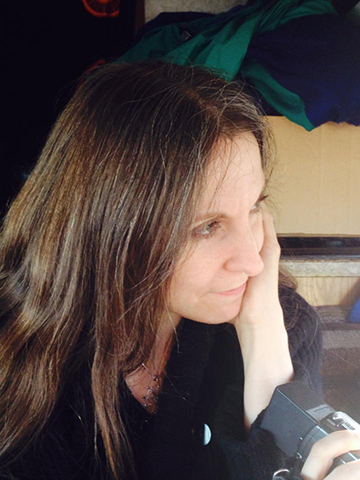
Dana Corby: My Gods, how it’s changed! When I started out it was almost entirely word of mouth, though the media were beginning to discover us. Hans Holzer & Susan Roberts has books out, and the Witches’ Almanac has just put out it’s 2nd issue. It was actually the Almanac that put a name to what I felt I was, and confirmed I wasn’t the only one there was.
Yvonne Aburrow: Biggest change is arrival of the Internet
Jason Mankey: Twelve years ago: Everything moved online, at least that’s how we met other Pagans. We argued over E-mail lists and WitchVox was the big eye in the sky. Now: Many blogs drive online commenting at least, arguments happen in real time, and get real personal, real fast. Our differences are much more noticeable these days and many of us (but certainly nothing close to all) spend more time in our individual camps.
David Dashifen Kees: The key is “more noticeable” in your comment, Jason. I think these differences always existed but we’ve begun to look more closely at them to try and identify ourselves more accurately and, unfortunately, we’ve begun to see a strength in unity rather than a strength in plurality, it seems.
Jason Mankey: They did always exist, I agree completely Dash.
Tom Swiss: Perhaps because we were more isolated in those days, when we found anyone even close we were eager to connect; now we have more opportunities to connect and so perhaps only want to connect with those more like us. (Thus more arguing betweem e.g., “hard Polytheists” and “humanistic Pagans”, a feeling that each doesn’t need the other as much, maybe.)
Sable Aradia: Not long after that (mid 90s I guess) the Re-constructionist movement got going in the communities I hang with. Now everyone wanted historical documentation for everything & everyone thought they were in the SCA. Witchvox was the best place to connect with other Pagans and huge flame wars rocked the Yahoogroups. Then my craft became more community-focused for many years. I immersed myself in the (largely Wiccan of various stripes) community of Vancouver and the Okanagan Valley. Druidry was big for a while around here I remember.
David Dashifen Kees: And, with those opportunities to connect, we also encounter those who think differently than us more regularly.
Annika Mongan: The internet allowed me learn about Paganism. I had met plenty of Pagans through the SCA, Ren-Faires, etc. but it wasn’t until I was able to research Paganism secretly online that it became an option for me.
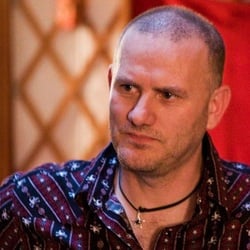
Sable Aradia: When Hutton’s book came out, everything changed. The Wicca and anti-Wicca camps started to divide. I got taken to task by a list moderator for demanding that a vocally anti-Wiccan Heathen stop telling me that his religion was superior to Wicca and instead starting explaining what his religion actually *was*.
Jason Mankey: “Triumph” was a water-shed moment. It made Pagan Studies a legitimate field of study.
Sable Aradia: Now everybody’s a shaman or a traditional witch. And I spend more time on the internet than I did before (mainly it’s this job).
Laine DeLaney: The speciation of differences is more marked nowadays, certainly. It parallels the development of distinct identities within the LGBT community, for a lot of similar reasons. “You’re all the same.” became, “Well, actually…”
Annika Mongan: “Triumph” is actually what sealed the deal for me. A religion that was able to survive and continue to thrive with that level of introspection and re-writing of its own history? Yes, please!
Jason Mankey: “Triumph” made me a more committed Witch. I actually liked the Gardner in that book, I liked a Witchcraft that was a continuation of the Western Magical Tradition as inspired by 19th Century Romantic and Victorian poets.
Sable Aradia: I felt exactly as you do about “Triumph.” I love that we can see the bullshit in Wicca’s founding legends but know it works and love it anyway. I wish that some other faiths could be as rational about their histories; maybe then we can have more meaningful discussions.
Jason Mankey: Speaking of the internet . . . has it been good or bad? A lot of both?
Gwion Raven: Oh, of course it’s good.
David Dashifen Kees: Keep in mind my own biases (I’m writing computer software on my other three monitors) but the Internet is a net good with bad tossed in as a balance.
Annika Mongan: Personally I’m incredibly thankful for it. I don’t think I would have had the courage to seek out Witches in person without having a chance to interact online first.
Molly Khan: For me, it’s been largely amazing. With a dash of awful, at times.
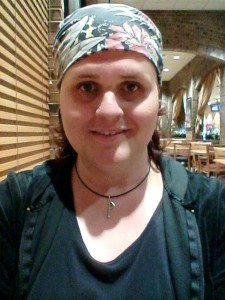
Gwion Raven: Well, I should say (from my Buddhist days) that the internet is Empty. It’s an equal opportunity lover and hater. But it does make Witchcraft more accessible to the kid in Iowa that needs it.
Annika Mongan: Or that lost Christian girl sneaking around on the internet in the middle of the night in Germany.
Molly Khan: Absolutely. I never would have found my local community without the internet.
Tom Swiss: I remember in the 90s, in grad school, thinking how cool it would be if everyone had e-mail. That was before spam. It brings its problems as any tool or technology does, but overall a plus.
Rua Lupa: I may be still Christian if it weren’t for the internet. So I’d say its done a lot of good!
Jason Mankey: I think it makes our disagreements bigger, is bad for the blood pressure, and can be an endless source of headaches. Of course most of you have probably don’t get publicly lambasted online (well Sable probably does). I love that it has connected me to more people. I love that it has made information more accessible.
Gwion Raven: And having said that, raising power, feeling the temperature of the room change, hearing 100 witches singing in unison…that cannot be done on the internet’
David Dashifen Kees: Gwion – but I’ve also never had that sort of experience IRL, either. For me, my community is online.
Sable Aradia: But as a Wiccan, I see that there is a strong sense that it’s all either “hierarchy and personality cults” or “light anything-goes spirituality” and that’s why I’ve been working hard to encourage serious theological discussion as of late. This is true of Paganism in general I think. I really do see us (serious Pagans/Polytheists/etc. of this time) as being in the position of the early Christian church fathers. You can’t help but start codifying things a little in the development of a faith. I think it’s important that we be cautious about what we say and how we say it because it all could have amazingly vast repercussions. I doubt that Augustine had any idea that his writings about the doctrine of Original Sin would produce centuries of systematic oppression.
Molly Khan: I’ve had some yuck thrown my way recently. I still love the internet.
Laine DeLaney: Gwion, true, but having the validation of similar experiences from a worldwide ritual initiated and coordinated online has its benefits, too. (From my Fellowship of Isis days)
Sable Aradia: In general I think the internet was the single most important things to develop modern Paganism, and I love it, despite its problems.
Jason Mankey: Public perceptions of Wicca don’t always match up with the reality. To many, we will always be fluffy bunny “archetypalists” or other such thing. And yes, there’s real power when 100 Witches sing together or 13 Witches raise a cone of power.
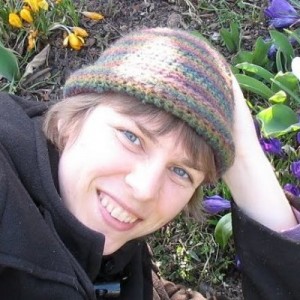
Laine DeLaney: I think that’s a result of the popularization of Wicca, Jason, as well as the emphasis that I’ve seen lately of it being an “Anything goes” kind of faith.
Rua Lupa: I agree with Sable, the internet helps facilitate discussions on important issues that impact the future. I really liked the discussions on LGBT rights in rituals that are gendered oriented, the information shared and gathered on making sure you are participating in a safe group versus an abusive group, and especially tackling sexual abuse in the community. Things that are able to reach and improve the lives of far more people than before…
Laine DeLaney: In some ways it feels like it’s losing definition among those who aren’t tied to the traditional coven structure, something that I believe was an initial concern with Buckland’s self-initiation.
David Dashifen Kees: And Cunningham’s Solitary Guide. Formative, necessary, important … but disruptive.
Angus McMahan: I don’t care so much about what “they” think about us. But I adore that I get shy, awkward emails and texts from newbie solitaries in red states, who have no one to turn to, talk to, or guide them along.
David Dashifen Kees: aww … that’s awesome, Angus
Annika Mongan: Angus – yes! I get so many emails from apostate Christians and I tear up just about every time. I tried to reach out for people when I was leaving fundamentalism and approaching Paganism, but couldn’t find anyone who had walked that path before. I love the internet for giving me the opportunity to be the support I wish I had had to those who are just starting that journey.
Molly Khan: Wicca gets a lot of hate in Heathen circles. When people are complaining about my path of Heathenry, they often resort to calling me a Wiccan. Which is at once hilarious and hurtful for actual Wiccans.
Laine DeLaney: Yup, Molly, the fact that respected folks like the founders of the Troth can be dismissed as Wiccatru is insulting to serious Wiccans and Heathens alike.
David Dashifen Kees: Wicca gets a lot of hate from every direction from the most strident of folks. I would love to know how many of them were, at one time, some form of Wiccan. I suspect that, for some, theirs is the fervor of the converted (so to speak).
Yvonne Aburrow: I really dislike the whole anti-Wicca thing because it is directed at pop-Wicca for the most part. Which is not the original form of Wicca.
Gwion Raven: I really, really dislike folks of tradition X bashing folks of Tradition Y. I think that hurts all of us.
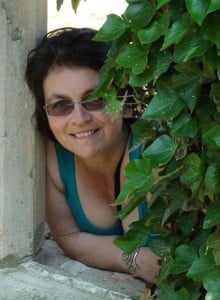
Tom Swiss: Free Spirit Gathering and Starwood are a big part of my Pagan experience. I think of all my Blue Star Wicca peeps sharing the horn of mead with my Heathen peeps at FSG and wonder at people talking about Heathen* vs. Wiccan beef.
Laine DeLaney: Yvonne, I saw that. Even when I was Wiccan, I was a polytheist, I don’t understand that.
Yvonne Aburrow: Yes it is crazy. That is why I constantly assert that you can have any theology you want. Even monotheism. lol
Jason Mankey: Sometimes there’s a tendency to define various strands of Paganism by what they aren’t rather than what they are. “You can’t be a polytheist” for example.
Angus McMahan: Bingo.
David Dashifen Kees: I think a lot of the duotheism, though, stems from the Lord and Lady speak that is common throughout a lot of the books we all probably read in the 90’s. It was hard, for me, to ever call myself a Wiccan because of that language. It wasn’t until years later that I actually was able to understand the complexities instead of the black/white nature of things.
Molly Khan: Dash, I totally understand. This was my understanding of Wicca until I actually talked to real Wiccans in person.
Sable Aradia: Guys, there will always be bullies and abusers in a community, unless the members of the community stand up for the ones being abused. If we allow anyone in our midst to insult anyone else’s faith as “stupid” or “lesser,” then those abusers will continue to grow in power because they will have learned that this is an effective way to get shit done. We have to mind our own language and we have to call out other people who do that shit, whether we are part of the group they’re insulting, or even like that group, or not, or it will just grow.
Molly Khan: Sable – 100%. This is such a huge problem in the Heathen community, honestly it breaks my heart.
Yvonne Aburrow: Many polytheist Wiccans see the Lord and Lady as the patron deities of the Craft
Laine DeLaney: I’ve always felt that an intelligent person who explores spirituality will come to different conclusions about theism and the lack thereof over their life. Sometimes that can even change day to day. That’s why I like the new emphasis of practice over belief. Beliefs change.
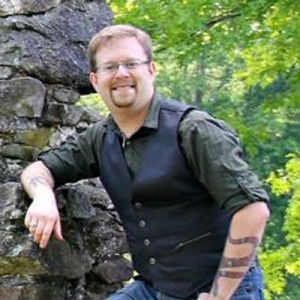
Gwion Raven: And there you have it – Talking to people in person. Most of the dust ups on the internet are between people that have never broken bread with each other. When it’s a real person sitting across from you, it’s a little tougher to call them names!
David Dashifen Kees: True, Gwion, but it’s also hard to formulate thought in a structured way. I love this sort of conversation because I’m forced to read and re-read my statements (though perhaps not everyone does that) in order to be sure that what I type is what I actually mean to say. In a face-to-face conversation, everything just gets blurted out and I find myself having much more difficulty both understanding others and transmitting my thoughts/feelings.
Yvonne Aburrow: Me too. One of the things i find difficult about the emerging polytheist movement is the emphasis on belief.
Sable Aradia: If you live long enough your enemies will float down the river. I just keep doing my thing. Some like it, some don’t. I don’t much care; you can’t please everybody. I’m open to constructive criticism but oppositional hatred for its own sake is never constructive. When someone starts with “your beliefs are stupid” or “I know your beliefs better than you do” the conversation is over. They already know everything; don’t confuse them with the facts. So why waste your time? Eventually when they learn that dealing with you is inevitable, they learn to be polite or they go away.
Jason Mankey: With the rancor that pops up in our extended community from time to time is the Pagan Umbrella doomed?
Sable Aradia: I worked as a dispatcher for a taxi company. Daily I was called a bitch on the phone. When I started riding around in my hubby’s cab and meeting the people face-to-face who called me a bitch, they stopped.
David Dashifen Kees: Yes, but everything is eventually doomed (one again, I repeat, hail, Eris)
Laine DeLaney: The rancor and conflict are a sign of healthy interest between people with sincerely held ideals. I can’t see the Pagan Umbrella as doomed when that’s still going on.
Rua Lupa: There is a mixed problem – there is actually name calling and unproductive word tossing, and there is actually criticisms that can be done constructively. I often get the impression that people tend to see them as one and the same. And so what ends up happening is that there is enforcement against any criticism and everyone just pats each other on the back – just smile and nod and everything will be okay. I think there needs to be a proper balance. Zero tolerance of hate speech, and acceptance of proper debate on issues. Otherwise you’re prone to Fluffy Bunny Syndrome.
David Dashifen Kees: Skins seem more thin online.

David Dashifen Kees: That’s likely the way it’ll work out, I think as well. And, those rancorous people will likely have a grand old time doing what they do and doing it well. But, what I fear will happen is that we’ll lose the middle. If we go with John Becket’s tent-pole metaphor, we’ll find some many people around the poles (community, deity, self, and nature) that there won’t be as much room for or conversations about those who (like me) hang out in between those poles.
Molly Khan: Dash, I worry about that too. I see it much like politics – over time, everything seems to be getting more polarized.
Laine DeLaney: Dash, yes, but I also think that people need different things at different points in their life. I am seeing that happen within Heathenry, though – you have SCA level re-constructionists for whom spiritual practice is an afterthought, and then you have screwheads like myself who think the Gods care less about wearing the right underwear or oppressing the right people than having good relationships.
Molly Khan: I certainly don’t think the Umbrella is going away, at least not anytime soon. There are enough people actually out there (as opposed to online) who still identify as Pagan as well as their specific path that it will be around for a long while.
Laine Glaistig: What happens when they don’t, though, Tom? The internet means that a lot of time they will find a way to stick around and be a voice.
Jason Mankey: There are people most of us would consider “under the umbrella” who actively bristle at the word “Pagan.”
Molly Khan: Jason, that’s very true. But I think they are a much greater minority than their voices seem.
Yvonne Aburrow: The umbrella is a big tent, but it is not in decline. The fact that there is heated discussion is a good thing
David Dashifen Kees: Jason – and there are those that many of us would consider male who may bristle at that term (not an attack, just spinning the phrases). It’s up to us to inquire and learn rather than assume.
Yvonne Aburrow: Those who try to define their community too narrowly will find themselves big fish in a tiny tiny pond. Communities/ coalitions of common interest don’t have to agree on everything – only on the topics they are collaborating on.
Gwion Raven: Using the tent metaphor – The idea being that lots of people can fit under it. If you invite many people you get diversity (a plus) and you get differences (also a plus). It’s how those differences are discussed, held and worked with that determines how successful your tent is. I think having many people in the tent that then go out and get their own tents is a good thing in general.
David Dashifen Kees: Gwion +1 – and, it’s also helpful when people with tents are willing to accept that people move between them, visiting one or another for a bit, before returning elsewhere without labeling them Wiccatru or something.
Yvonne Aburrow: I think one can wander around the tent having beer anywhere.
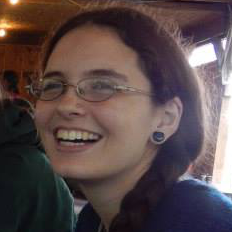
Jason Mankey: I for one love the umbrella, I love being able to experience new facets of spirituality and to have new experiences. The great thing about big festivals is being exposed to all sorts of different things. I don’t want that to go away. I will add though that sometimes when the internet is especially cantankerous I like to hide under my nice warm Wiccan blanket. (It’s got a picture of Gerald on it.)
Molly Khan: Jason, it’s funny, my experience is opposite yours! I love the umbrella, and I enjoy the Heathen community from time to time; but when the Heathen community gets to be too awful, I run back to the larger Pagan umbrella.
Laine DeLaney: I like the umbrella too. Not only does it keep me dry and keep the sun off, it means that I can find all sorts of fascinating things to pursue and incorporate in my personal practice.
Annika Mongan: I really love the umbrella. Even with all of the fighting, just think about what Christians have done and continue to do under their umbrella. As long as we stick to online flame wars, we’re in great shape by comparison!
Annika Mongan: I keep coming back to James Fowler’s model of stages of faith development. As we get older as a movement, we will have people who grow up in our traditions and their needs are different. At earlier stages in our faith development we need more certainty, and belief can feel more important than practice. How do we make space for those who need a paradigm with a lot of certainly and literal belief?
Dana Corby: One of the frustrations I’ve experienced in trying to create and manage a ‘pagan umbrella’ organization was getting all sorts of flak because all the events are Wiccan or Wicca-ish, but being unable to get anyone but the Wiccans to come share their ritual style with us.
David Dashifen Kees: I’ve experienced that as well when organizing for Pagan Pride Day in Massachusetts.
Yvonne Aburrow: I was pleased to see that the Pagan Federation conference, London, UK, had a Heathen opening ritual.
Molly Khan: Dana, that’s hard frown emoticon. Our local PPD has been able to get a Heathen ritual and a Kemetic workshop this year (and a Thelemic presenter!) which I’m super excited about. That success has largely come from building relationships throughout the year, and then approaching individuals about maybe doing a workshop or ritual.
Tom Swiss: At FreeSpirit Gathering, we specifically invite a different group each year to do our main ritual. It’s a mixed bag but it get us diversity and has made for some excellent ones — one year was a flaming staff battle between the Oak King and the Holly King…another was a ritual based around Where The Wild Things Are.
Yvonne Aburrow: In the UK, Heathens and Druids and Wiccans have their own camps, plus there are general Pagan camps – benefit of density of population.
Tom Swiss: Rancorous people will still have a voice, sure, but I’m thinking they will leave those on-line and real-life spaces of “the umbrella” and be speaking from outside.
David Dashifen Kees: I wonder, if Tom’s right, and the cantankerous skedaddle elsewhere, does the Pagan label become more generally applicable?
Jason Mankey: So where do you see Paganism headed in the next twenty years? Final thoughts.
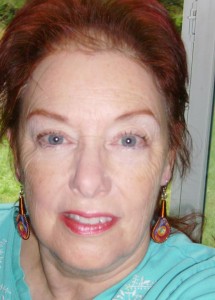
Annika Mongan: Dana – it’s like we’re becoming their rebound relationship with religion?
Gwion Raven: More of it. More specialization. More political power.
Laine DeLaney: It really depends on the branch, but I see more speciation occuring.
Yvonne Aburrow: I think there will be more community and co-operation and more understanding of diversity
Laine DeLaney: Agreed on political power, there are more and more news stories that are like, “Hey, can you believe that this *nut* wants to run for governor”” The tone doesn’t change, but the frequency has increased. Same with social sway.
Molly Khan: I agree with Gwion and Laine – lots more specialization. There will hopefully be more culturally-specific local groups popping up as Polytheism of various stripes becomes a bigger thing (and I think it will). But I also think we will retain a group identity within that specialization.
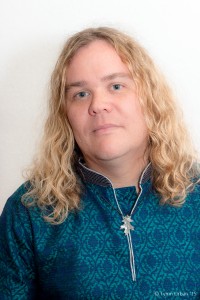
Yvonne Aburrow: I actually think there needs to be less secrecy but I suspect I am in a tiny minority. Then again i was ahead of the curve with the theology thing, so who knows?
Gwion Raven: Inevitably, some will walk away
Annika Mongan: I think it’s tricky. On the one hand we can look at the evolution of other religions and see our current problems and trends reflected there, leading us to think that we’re following a well trodden path that every other growing religion has followed before.
But on the other hand we are unique. We are aware of our founding myths (“Triumph of the Moon”) unlike other religions in the past. We have the internet, which changes so much. And we’re at a fascinating time in world history where we face challenges that have no precedent in recorded history.
Rua Lupa: I think any kind of belief system requires some kind of structure, otherwise its not a belief system, and then there is too much structure where the belief system cannot adapt or grow out of its finely tuned niche when the world around them changes – Ecology 101. Fundamentalism dies while more balanced structures adapt and survive. Hence all the churches closing down around the ‘Western’ world and the growing numbers who don’t adhere to a fundamentalist belief.
Yvonne Aburrow: The LGBT issue is a huge reason for the decline of the churches. The fact that we are mostly LGBT friendly is a huge thing.
Molly Khan: Yvonne, I think that’s 100% right. It was a big factor in me leaving Christianity. As a youngster I contemplated becoming a nun.
Jason Mankey: Yup! Paganism in general has been ahead of the curve in a lot of areas. That makes me so happy and to be here and proud of our community.
Dana Corby: I think Paganism as going to be less and less overtly ‘religious’ and far more play-oriented. Wicca will retreat more and more from the ‘umbrella,’ as we get older and less able to tolerate the increasing levels of animosity. What worries me most, though, is that our elders are starting to die in alarming numbers. What will become of their accumulated knowledge? Who will carry the torch, and where will they take it?
Yvonne Aburrow: Interesting Dana i think it is all getting more serious! A bit more levity would be a very good thing though.
Sable Aradia: We will continue to grow, though perhaps more slowly than we have, especially since a lot of our ideas are considered more mainstream now. We’ve already seen a lot more public acceptance, of Wicca, Druidry and Heathenry in particular. The Heathens recently graduated to having their faith being butchered and insulted in mainstream media (Agents of SHIELD) so widespread public tolerance can’t be far off for them. wink emoticon There will be a division in the community – a group of Polytheists will split off – and for a while the less hardline anti-Pagan polytheists will travel between groups. But in the meantime, more groups will choose to embrace the Pagan umbrella. For example, Voodoo and the African Diasporadic faiths have come to participate in a big way. As a result, there will be more intersectionality than we’re currently seeing. However, there will be a general trend towards siloing, and the big Pagan festivals will either die out, focus on one or two groups, or become massive interfaith parliaments. And we will all develop deeper and more cohesive theologies as we test and explore the limits.
Tom Swiss: The subtitle of my book (plug) is “Zen Paganism for the 21st Century.” I think that the leading edge of Neo paganismis about building spiritual practice (‘doxy) that’s compatible with and capable of giving guidance to the world of science and technology. No coincidence that we have so many software folks, engineers, and scientists. That will probably keep making friction between “humanistic Pagans” and some sorts of hardcore “hard Polytheists”. (Only some!!!) I wouldn’t be surprised to see some sort of break-off by a set of hardcore reactionary re-constructionalists who insist on the existence of deities in a straightforward manner (the “magic king” approach, as opposed to those who allow for more theological subtlety).
David Dashifen Kees: I’m fairly optimistic. I think Tom’s right in that the most disruptive voices will eventually hive off even more so than they already have and find a place where they can do what they want to do in peace leaving the rest of us to really start to work together, to find some of the commonalities that might help us to better define who we are collectively since many of us have had the freedom to do so personally. Furthermore, that this collection has room for a variety of religious traditions and thinking within it.
Rua Lupa: I see Paganism growing as seen from those outside it, and those within it reaching out more and becoming more publicly understood. Over time I see that the word “Pagan” may become dropped entirely as the numbers of those who are ‘outside’ dwindle while those ‘inside’ become a majority. The end result being a much more diverse tapestry of beliefs the world over, trickling out from the ‘West’ as we become more interconnected and begin to commonly see ourselves as citizens of Earth, with diminishing nation boundaries. But that’s more like over 50 years in the future if the trend continues…
And with that we mostly went our separate ways . . .
*Tom’s spell-checker originally auto-corrected Heathen to “Heather.” Just thought that was worth sharing. -jason


